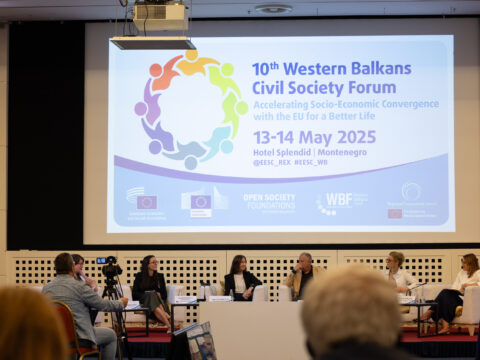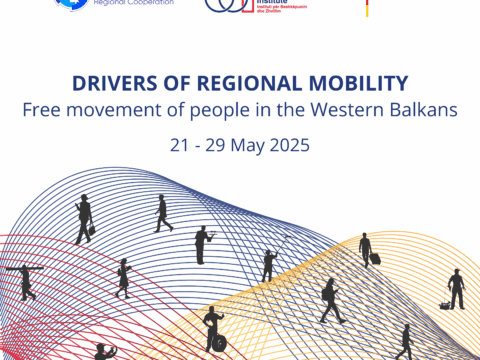Join us at the 9th edition of the EUSAIR Forum

The External Dimension of EU-supported Connectivity: from Berlin Process to Global Gateway
April 24, 2024
Unlocking the Cohesion Policy Toolbox for South East Europe 6
May 22, 2024Contributing to the discourse on the future of EU policies post-2027, CDI is organizing the “Unlocking the Cohesion Policy toolbox for South East Europe 6” workshop as part of the 9th EUSAIR Annual Forum that will take place in Šibenik on 15 and 16 May 2024. The workshop starting at 14.30 hrs on May 16th aims at drawing attention of Cohesion and Enlargement stakeholders to the challenges and opportunities confronting youth in SEE6 and shall serve as a platform to present, assess, discuss and come up with proposals on how the EU Cohesion Policy toolbox can be put at the benefit of SEE6 accession to EU.
With EU membership as the ultimate goal, the recently unveiled Growth Plan for the Western Balkans represents a significant stride towards gradual integration of the region into the EU single market and increased convergence. The “Much more than Market” report proposes an Enlargement Solidarity Facility to manage externalities and to facilitate a smooth EU entry for new members. Simultaneously, the released EC Communication on Pre-enlargement Reforms and Policy reviews emphasizes the importance of developing post ‘27 EU spending programs with enlargement in mind. The momentum for EU enlargement is tangible once again!
In addition to existing Enlargement-led instruments, i.e Instrument for Pre-accession (IPA) and Growth Plan, Cohesion instruments hold significant importance in driving social and economic progress in our cities and regions, allowing various societal stakeholders to actively participate and reap the benefits. Both MRS and INTERREG programmes play a vital role in promoting regional integration, fostering cooperation and good neighbourly relations, and supporting the European integration process of SEE6.
The SEE6 region faces huge disparities compared to its EU neighbours in terms of infrastructure, support schemes, accountability and consultation mechanisms where young people can be heard and taken into account. Western Balkans youth have been advocating for structured engagement with policymakers and a more conducive environment to benefit from all EU instruments available to the region.
This prompts reflection on whether the ongoing review of the EU’s cohesion policy can take a more assertive stance in aiding candidate countries towards membership, by addressing their social, territorial, and economic needs more effectively. Can the partnership principle be advanced in the SEE6 context? How should policy responses nurture and mobilize WB human capital, and pave the way for greater convergence? How can benefits of accession be frontloaded prior to formal EU membership?
Click here for the workshop agenda.




